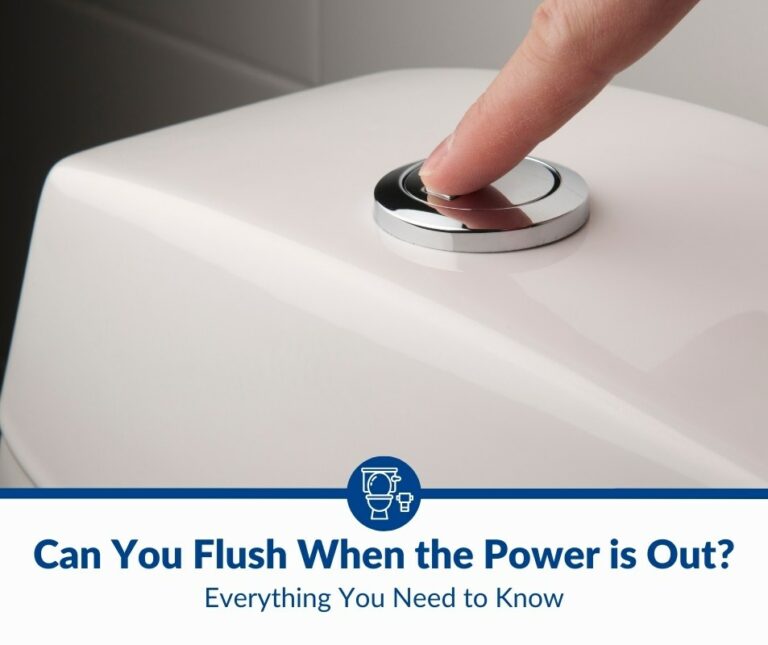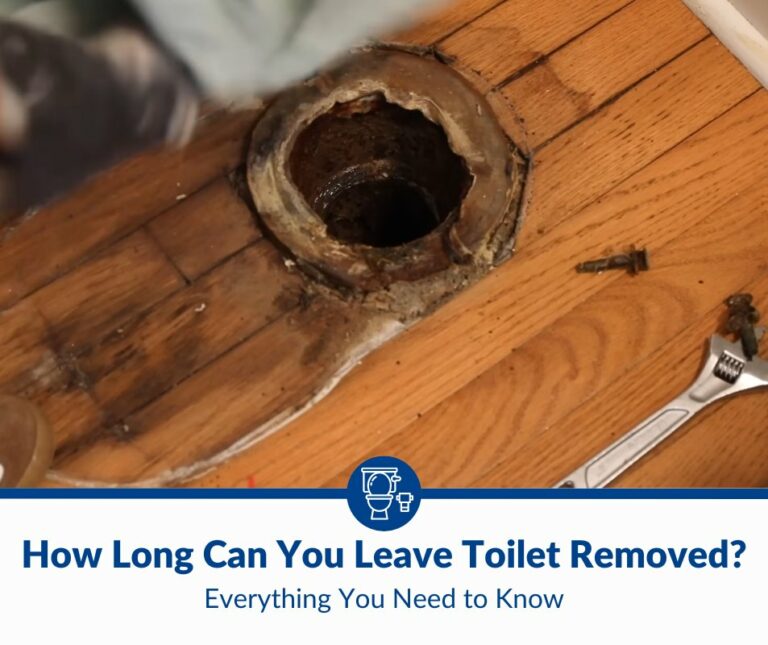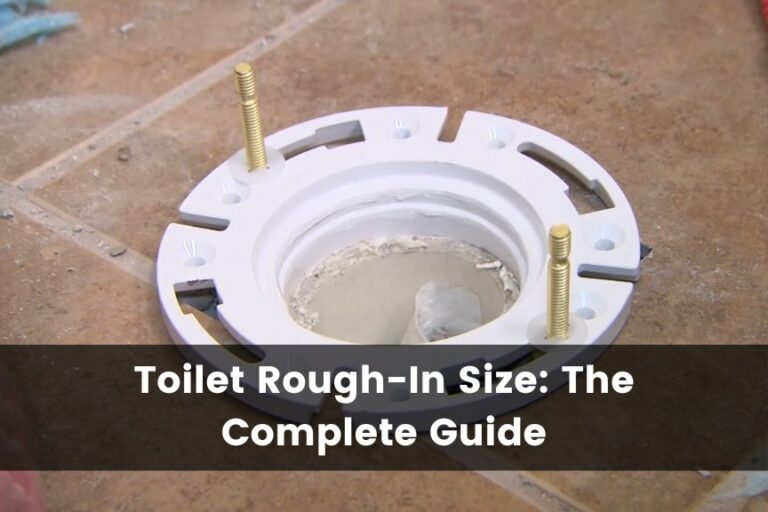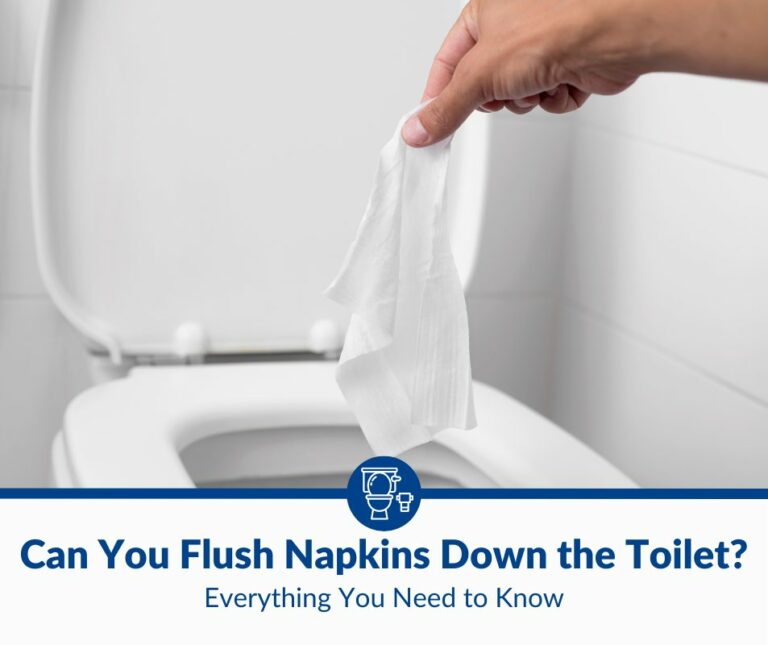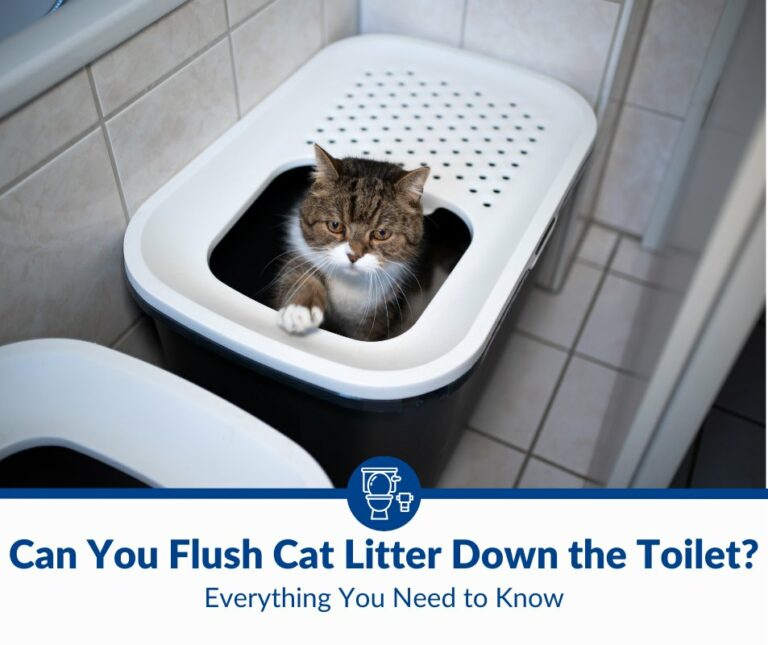Will a Toilet Unclog Itself Overnight?
A clogged toilet is a menace. Like most people, you may wonder whether to take any immediate action or wait for a toilet to unclog itself. Waiting isn’t always practical without assessing the type of blockage, but if you do decide to wait, will a toilet unclog itself overnight?
A toilet may unclog itself overnight if the blockage is caused by water-soluble excrement and toilet paper. If a toilet is clogged by materials that don’t dissolve in water, it may not unclog itself overnight. You must fix the problem as soon as possible in such situations.
A clogged toilet doesn’t always have an evident or typical cause. While you may only think of a blockage in the drain pipe due to something flushed down the toilet, other factors might cause, facilitate, and worsen the problem. Keep reading to know if a toilet will unclog itself overnight.
How Long Will It Take a Toilet To Unclog Itself?
A toilet may unclog itself in an hour or so if the blockage is only due to organic waste comprising human excrement and some regular toilet paper. However, the exact composition and severity of the blockage will determine how long it will take and whether or not a toilet will unclog itself.
Consider the typical composition of human excrement or feces. Normal feces comprises the following:
- Solid matter: 25%
- Water: 75%
The 75% water content in feces isn’t a concern in the context of a clogged toilet, but the 25% solid matter can be an issue. Human excrement isn’t 100% soluble in water, so all the waste in a clogged drain pipe is unlikely to dissolve completely. Besides, the proportions usually vary.
The 25% solid waste in excrement includes the following matter:
- Cellulose, indigestible food: 30%
- Cholesterol and fats: ~10% to 20%
- Dead bacteria: 30%
- Inorganic substances: ~10% to 20%
- Protein: ~2% to 3%
- Others: bile pigments, dead cells, etc.
The bile pigments and dead cells aren’t a problem, and their proportion is too insignificant to be consequential in a clogged toilet. The excreted proteins aren’t a major issue, as around 50% of the nitrogen in feces is water-soluble. The concerns are the insoluble cellulose and fats.
Normally, people excrete approximately 22.4% of ingested cellulose in the form of dietary fiber. In contrast, dietary fat intake doesn’t necessarily increase the amount of lipids excreted in feces. But a high calcium intake and other factors can increase the proportion of fats in excrement.
The fats can weigh 2.4% to 8% of wet feces and 8.7% to 16% of dry excrement or solid waste. These fats typically comprise the following substances:
- Fatty acids
- Waxes
- Phosphoglycerides
While phosphoglycerides are polar and, thus, soluble in water, most of the other fats and waxes are insoluble, such as calcium fatty acids in feces.
The insoluble cellulose and fats can prevent a toilet from unclogging itself, whether in an hour or overnight. You won’t know how much of these insoluble materials are in the blockage. Also, it is quite likely that the blockage has a buildup of more than just one person’s waste in the toilet.
Add to this the unknown amount of toilet paper flushed down the toilet. Regular toilet paper should dissolve in water within an hour. But if you have a lot of toilet paper in the toilet’s drain pipe, the pieces could be stretched, twisted, and balled up by the time you realize there is a blockage.
The stuck undissolved toilet paper will make the insoluble waste in feces much harder to pass through the drain pipe, even if you flush the system, which is anyway not advisable when there is a blockage already.
Therefore, it is practically impossible to predict precisely how long a toilet might take to unclog itself. Feces and standard toilet paper will eventually dissolve in water and pass through the drain pipe. However, a toilet will probably not unclog itself if there are other insoluble materials.
A toilet may be partially or completely clogged by some or many of these insoluble materials:
- Baby wipes
- Cigarette butts
- Condoms
- Cotton balls, swabs, etc.
- Diapers
- Dental floss
- Fabrics
- Grease
- Hair (humans and pets)
- Mineral deposits
- Oils
- Paper towels
- Pet litter
- Pills or medicines
- Plastics
- Sanitary pads
- Tampons
- Tissue paper
- Thick toilet paper
- Wet wipes
If you know that some or many of these materials have been flushed down the toilet, you cannot expect the toilet to unclog itself overnight unless the blockage is partial or not severe. Also, you need to know where the toilet is clogged.
The blockage may be in the trap of the toilet or further down in the drain pipe. The latter could be anywhere in the pipe or the sewer line. If the sewer line is blocked, you will probably have more than one clogged toilet or drain pipe in your home, and the problem might get worse.
You can choose to wait overnight for a toilet to unclog itself, but I don’t recommend more than a couple of hours. Two or, at the most, three hours should be sufficient to figure out if the blockage is due to normal excrement and regular toilet paper. Otherwise, there’s probably a crisis in the making.
When Can You Wait for a Toilet To Unclog Itself?
A clogged toilet in any apartment or house may be due to the same typical causes. But the type of blockage and its severity is likely to vary. Thus, there is no rule or universal approach to deciding when you can wait for a toilet to unclog itself and for how long – if that’s viable at all.
Having said that, there are some instances when you can wait for a toilet to unclog itself. Here are a few such circumstances:
A Toilet Doesn’t Have Water Leaking From the Tank
Ideally, a toilet tank shouldn’t leak, whether at the fill valve or through the flushing mechanism. However, a toilet can have water dripping through the tank’s outlet into the bowl. If you have any such leakage, you can’t really afford to wait for the toilet to unclog itself.
Even if the dripping or leakage is nominal and slow, you might have water overflowing from the toilet bowl in a few hours. So, waiting overnight for such a toilet to unclog itself is certainly not a pragmatic option. You should also close the water supply shut-off valve for the toilet tank.
The overflow won’t be only the clean water from the tank. Traces of the waste stuck in the drain pipe or the toilet’s trap, if any, might contaminate the water in the bowl. Hence, the overflow will likely be a health hazard and a potential crisis for you, your family, and your property.
The Blockage Has No Matter That’s Water-Insoluble
Suppose you know for sure that nothing but regular toilet paper has been flushed into the toilet. In such a scenario, you may choose to wait overnight, hoping that the toilet will unclog itself.
However, anything blocking the drain pipe that won’t dissolve in water or basically take too long to degrade will prevent the toilet from unclogging itself. Waiting overnight might be futile.
The Drain Pipe and Sewer Line Are Clean and Intact
Toilets don’t necessarily clog due to only what you flush down the drain. The drain pipe itself or the sewer line may not be clean or even intact. Underground sewer lines can be blocked and damaged by roots. A drain pipe may have mineral deposits blocking its bore.
That said, you can wait for a toilet to unclog itself overnight if you know that the drain pipe and the sewer line are all right. The easiest way to know is by checking the other toilets and drains. If no other drain line is clogged, whether for gray or black water, the sewer line is probably fine.
Your Plumbing Vent Pipe Is Clean and Unblocked
Your property has at least one plumbing vent pipe. This plumbing air vent pipe is mandatory as per all building codes. If this plumbing vent pipe is blocked or unclean, you may have a clogged toilet. There are other symptoms, of course.
You must not wait for a toilet to unclog itself if the vent atop your property or roof has any type of obstruction that prevents fresh air from flowing into the drain pipes. Similarly, a blocked pipe will not regulate the air pressure throughout your plumbing system, which is what it is intended for.
A blocked or ineffective plumbing vent pipe won’t allow a clogged toilet to unclog itself. Even if you use a plunger or take any other remedial action, the toilet may still not drain as it should. It is imperative to fix the air vent to resolve the problem when it is the causal or facilitating factor.
You Don’t Need To Use the Toilet for Hours or Longer
Last but not least, you can only wait for a toilet to unclog itself if you or anyone else won’t need to use it overnight. Waiting for a few hours during the day or when no one is home is still viable, but you can’t predict if the toilet will be totally unused for an entire night and the morning after.
An overnight wait is risky because the toilet may not unclog itself. Even if you hope that you can avoid using a toilet overnight, the inevitable morning compulsions will complicate your situation. Furthermore, any other toilet in your house may also get clogged over time.
Suppose your clogged toilet is due to a blockage in the main drain pipe out of your house or the sewer line. In such a case, you may have only one clogged toilet at first, but another, and all may have the same problem, which can happen soon as those will be used more in due course.
Why You Shouldn’t Wait for a Toilet To Unclog Itself
Uncertainty and unawareness are the two primary reasons why you must not wait for a toilet to unclog itself. Consider the following probabilities, none of which you can be sure of whenever you have a clogged toilet:
- The blockage may have a lot of or considerable insoluble materials that water won’t dissolve. Plus, some substances may not degrade quickly, whether inorganic or organic, including plastics, traces of chemical cleaners that you might have used, etc.
- Thicker toilet paper or a large clump of regular ones can form a somewhat rigid blockage. In such circumstances, the drain pipe requires your intervention for the toilet to unclog. Clumpy toilet paper may need some agitation to dissolve completely.
- A clogged toilet is a haven for microbes. The longer you wait, the more time they get to multiply. Even regular flushing doesn’t always eliminate microbes from a bowl and drain, so waiting for a clogged toilet to unclog itself is likely an unwise move.
- Waiting for a toilet to unclog itself increases the intensity of the foul odor. It also risks an overflowing bowl if someone inadvertently flushes the system or there is a leak. If you decide to wait overnight, close the shut-off valve at the water supply line for the tank.
- A clogged main drain pipe or sewer line may have a ripple effect on other toilets and sinks. This, in turn, increases the risks of backflow and backup. A toilet backing up is an evident sign of a clog, but backflow is more concerning as sewage flows into your pipes.
- You may not know for sure if the clogged toilet drain pipe has excessive mineral deposits causing or facilitating the blockage. This problem is typical with hard water. You must check for visible mineral deposits in the toilet bowl to assess such a situation.
You may choose to wait for an hour or a few, if it is feasible and safe, before intervening yourself or calling a plumber. The only circumstances when you can wait overnight are out of compulsion and if it’s raining, as heavy rain may cause a septic backup, which might clog a toilet even more.
The Best Methods To Unclog a Clogged Toilet
Whether you want to wait overnight or intervene immediately, here are the best tools you can use to unclog a clogged toilet:
Plunger or Toilet auger
Most people use a plunger before trying other solutions. You may also use a toilet auger if you have one. Don’t use a typical plumber’s snake to unclog the drain or trap of a toilet. A standard drain snake wire can damage the porcelain bowl of your toilet.
Use the likes of RIDGID Model K-3 Toilet Auger, available on Amazon. This three-foot (91 cm) long snake with a bulb head has a long ergonomic handle for easy operation. Plus, this auger has a vinyl guard that prevents damaging or scratching the porcelain bowl of your toilet.
Cleaning Agents
If you don’t have a toilet auger or can’t get one in time, you can use one or more of the following homemade drain cleaning solutions:
- Baking soda and vinegar
- Dish soap and hot water
- Liquid detergent (hard water)
Don’t pour boiling water into the toilet bowl. Use warm or hot water, and ensure you don’t pour too much to avert a potential overflow. Also, exercise caution when you use baking soda and vinegar to prevent excessive bubbles and splashes, which may cause an overflow.
A liquid detergent may be more effective than dish soap if you have hard water. Regular soap tends to form scum due to its reaction with the salts in hard water. Detergents are unlikely to form scum in hard water, and they have a stronger cleaning effect than mild dish soaps.
Cleaning Enzymes
Another effective solution is an enzymatic drain cleaner. If conventional solutions don’t work in your case, you can safely use the likes of Green Gobbler Enzyme Drain Cleaner (available on Amazon). This liquid can work on the following components of a typical blockage clogging a toilet:
- Cellulose
- Fats
- Grease
- Oils
- Paper
- Proteins
- Sludge
- Starches
The bestselling Green Gobbler is specifically formulated to be effective in cleaning:
- Drain pipes
- Grease traps
- Septic tanks
- Sewer lines
- Toilet traps
There are other products using bacteria and enzymes, but many of those are costlier, and not every such cleaner is a liquid. Some are in granular form that you should use with water. Also, not all enzymatic cleaners are formulated for toilet drain pipes and sewer lines.
The Green Gobbler can also unclog the main drain connected to the sewer or septic tank. You can use this solution routinely, as instructed on the label, to clean and maintain toilet drain pipes and sewer lines.
Should none of these solutions work for you, call a plumber or consider using a wet-dry vacuum if you have one. Don’t use a standard vacuum cleaner in a toilet or any water fixture. A wet-dry vacuum should be your last option unless you are familiar with it. Else, you may have a mess.
Conclusion
A toilet may unclog itself overnight if the blockage is mostly soluble excrement and regular toilet paper that will dissolve sooner or later. Severe clogging with insoluble materials flushed down the toilet requires intervention. Ideally, you shouldn’t wait for several hours in any situation.



